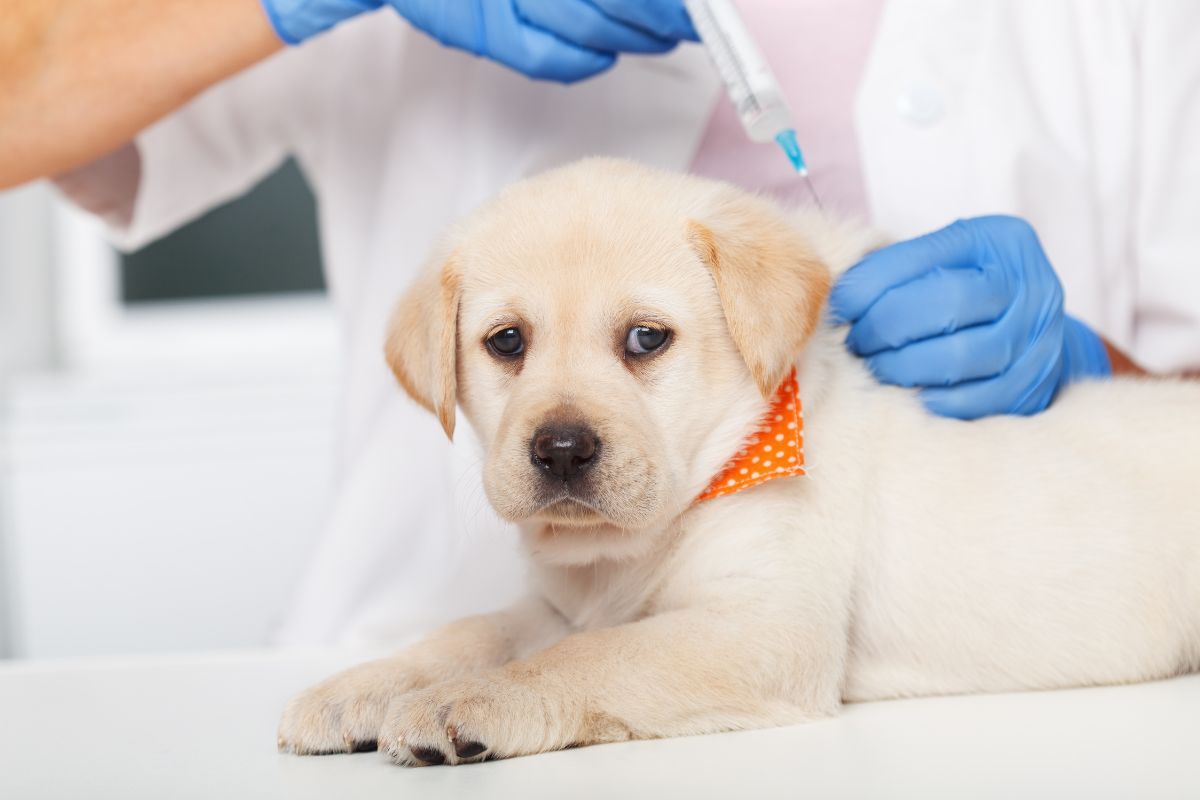Bringing a new puppy into your home is an exciting occasion. Those furry little bundles of energy can quickly become cherished members of the family. However, along with the fun and companionship comes a significant responsibility: puppy vaccinations. Vaccinations for puppies involve a series of immunizations administered to young dogs to build their immunity against various infectious diseases. These vaccinations typically begin at around six to eight weeks of age and continue at specific intervals until the puppy reaches around 16-20 weeks old.
Core vaccines, such as those for distemper, parvovirus, and adenovirus, are essential for all puppies, as these diseases can be severe or fatal. Non-core vaccines, including those for kennel cough and canine influenza, may be recommended based on the pup’s lifestyle and potential exposure to other dogs.
Veterinarians customize vaccination schedules to ensure puppies receive the necessary protection while minimizing the risk of over-vaccination. Booster shots are administered periodically to maintain immunity throughout the dog’s life.
Vaccinations for Puppies: What Pet Owners Think
It’s interesting to see how people feel about dog vaccines in the U.S. According to a recent survey:
- Roughly forty percent of dog parents think these shots might not be safe
- Over twenty percent doubt their effectiveness
- Thirty percent question if they’re even needed
- Thirty-seven percent of dog owners worry that vaccines could lead to autism in their furry pals, even though there’s no scientific evidence to support this concern for dogs or humans
While a majority of dog owners are reluctant to vaccinate their pets, they must understand that vaccines are safe. One study even showed that oral vaccination of dogs can eliminate canine rabies.
Read about the consequences of not getting your puppy vaccinated below.
1. Your Puppy May Contract Preventable Diseases
Vaccinations are the cornerstone of preventive healthcare for puppies. Puppies, just like human babies, have developing immune systems that are vulnerable to various infections. Vaccines help strengthen their immune response, preventing illnesses that could lead to suffering or even death.
Canine Parvovirus (CPV)
Canine Parvovirus can cause severe vomiting and diarrhea. Without vaccination, puppies are at a high risk of contracting CPV, which often leads to death. The virus can survive for extended periods. This means your puppy can get sick without coming into direct contact with an affected dog. They are vulnerable if they frequent areas where other dogs might have been.
Canine Distemper Virus (CDV)
Distemper affects multiple organ systems, which can lead to neurological issues and respiratory problems. Vaccination is the only reliable way to protect against it. CDV can spread through contact with infected dogs, putting unvaccinated puppies at risk during social interactions.
Rabies
Rabies is not only a grave threat to your puppy but can also pose a risk to humans. Rabies is typically transmitted through the bite of an infected animal, and there is no cure once symptoms develop. Vaccination is the only key to preventing this lethal disease.
2. Your Puppy Can Make Other Dogs Sick
Puppies are social creatures. They love to play and interact with other dogs in parks. Unvaccinated puppies can become carriers of diseases, putting other dogs at risk.
That’s why making sure your pup gets those shots is a big deal – it’s not just about protecting your pup; it’s about keeping the neighborhood doggy community safe and sound, too. Here are some contagious diseases that are known to spread through canine communities.
Kennel Cough
Kennel Cough is a contagious respiratory infection. Kennel cough is not life-threatening. But it can be extremely uncomfortable for the affected dogs. The good news is that kennel cough is easily avoidable with the right vaccinations.
Canine Influenza
Just like the flu can spread among humans, canine influenza can affect dogs. Vaccinating your puppy against this virus reduces the chances of them becoming carriers.
3. You May Have to Incur Costly Medical Bills
While vaccinations are not foolproof against all diseases, they significantly reduce the likelihood of your puppy falling seriously ill. The cost of treating a sick puppy, including hospitalization, medications, and veterinary care, can be financially overwhelming. By investing in vaccinations, you save both your pup’s health and your wallet.
Plus, some diseases lead to long-term health issues. These health problems require ongoing medical care. For example, survivors of severe parvovirus infections may suffer from digestive problems and weakened immune systems for the rest of their lives. Preventing these illnesses through vaccination is not only more humane but also cost-effective.
Not vaccinating your puppy is not an option. It’s a critical responsibility that comes with pet ownership. Remember, a healthy puppy is a happy puppy. Consult your veterinarian to create a tailored vaccination schedule that aligns with your puppy’s age, breed, and lifestyle. Don’t skip any shots or boosters!



